Rhinoplasty In Seattle


If you're unhappy with the way your nose looks or if it's giving you breathing trouble, you're not alone. Many people feel self-conscious about their nose, especially if it feels out of balance with the rest of their face. Others have had an injury or were born with features that make breathing harder than it should be. If you're unhappy with the shape or size of your nose, Rhinoplasty can help you achieve the look you desire.
Rhinoplasty is one of the most common plastic surgery procedures in the country. It can reshape the nose, fix structural problems, or help with breathing. At Said Plastic Surgery, we offer personalized rhinoplasty that focuses on both how your nose looks and how it works. Dr. Hakim Said is a highly experienced Seattle rhinoplasty surgeon with years of training in both plastic surgery and ENT (ear, nose, and throat), which gives him a unique skill set when it comes to nasal surgery.






Rhinoplasty is a surgery that changes the shape of the nose. It can be done to fix something you're born with, improve breathing, or just help your nose better fit your face. Some people want just a small adjustment to the tip of their nose, while others need a full structural change. Either way, the goal is the same: to help your nose look and function the way it should.
Modern rhinoplasty is more detailed and predictable than it used to be. At Said Plastic Surgery, Dr. Said often uses tools like 3D imaging during your consultation to help plan your surgery. This gives you a better idea of what to expect and helps the two of you stay on the same page. He also offers a newer approach called ultrasonic rhinoplasty. This method uses sound waves to gently reshape the nasal bones, which can help limit bruising and swelling afterward. These advanced tools help Dr. Said customize your procedure so it's exactly what you need.
Rhinoplasty isn't just about looks. For many people, it's about feeling better overall, whether that's from breathing easier, feeling more confident, or finally correcting a long-standing issue. Here's what it can help with:
Many of our Seattle Rhinoplasty patients say they feel more comfortable in their own skin after surgery. It's not about chasing perfection, it's about feeling more like yourself.
If you're thinking about changing the shape of your nose or if you've had long-term breathing issues, you might be a good candidate for rhinoplasty.
If you are considering Rhinoplasty, it is important to have realistic expectations and be in good physical and mental health. A lot of people come to us feeling frustrated with the way their nose looks or because they're tired of struggling to breathe through one side. Sometimes it's both. Here's what makes someone a good fit for the procedure:
Seattle Rhinoplasty surgeon, Dr. Said takes time during your consultation to go over your goals, review your health history, and examine your nose both externally and internally. That way, you can make a clear, informed decision about what's right for you.
During your consultation for a rhinoplasty Seattle plastic surgeon, Dr. Said will evaluate your medical history and perform a physical examination to determine if you are a good candidate for Rhinoplasty. He will also assess your aesthetic goals to ensure they are realistic and attainable.
To prepare for your consultation, you should:
Following a rhinoplasty Seattle patients may start seeing changes in the first few weeks after surgery, but keep in mind swelling takes time to go down, especially around the tip of the nose. Most of the swelling will be gone within a few months, but the last 10–15% can take up to a year to fully settle. It's a slow process, but a normal one.
What you can expect is a nose that feels more in proportion with your features. For some people, that means a straighter bridge or a more defined tip. For others, it's the ability to finally breathe through both nostrils. Whatever your goals, the result is something that should feel natural and still like you.

Right after surgery, it's important to take things slow. Most people take about a week off work or school. During that time, you'll wear a small splint on your nose to protect it. You'll also want to avoid heavy lifting, blowing your nose, and anything that might bump or strain the area.
Seattle rhinoplasty surgeon, Dr. Said will give you detailed instructions on how to care for your nose at home, how to clean around the splint, when to come in for a check-up, and what to expect over the next few weeks.
A little bruising and swelling (especially under the eyes) is totally normal and usually clears up in about 10–14 days. After the first week, most people feel ready to get back to their routine. Just plan to avoid contact sports or any activities where your nose might get hit for a few months.
Good aftercare is key to getting the best results, so we're here to support you every step of the way.
If you're not ready for surgery or just want a small tweak, a non-surgical rhinoplasty might be worth exploring. This is sometimes called a "liquid nose job" and involves using dermal fillers (like hyaluronic acid) to smooth out bumps, improve symmetry, or lift the tip of the nose. The whole thing takes less than 30 minutes, and the results are visible right away. There's no downtime, and most people go right back to their day.
That said, non-surgical options have their limits. They can't fix breathing problems, reduce the size of your nose, or correct major structural issues. But for the right person, they're a nice way to make a subtle change without having to commit to surgery. During your consultation, Dr. Said will let you know if this option makes sense for you or if a surgical route would be more effective.
When it comes to nose surgery, experience matters, and Dr. Hakim Said brings something special to the table. Not only is he a board-certified plastic surgeon in Seattle, but he's also a board-certified ENT (ear, nose, and throat) surgeon. That means he's trained to understand both the cosmetic and functional sides of the nose, which is especially important when your concerns involve breathing issues as well as appearance.
Dr. Said has been in practice for over 20 years and has trained at some of the top institutions in the country, including Stanford and the University of Washington. He's performed hundreds of rhinoplasty procedures and is known for his detailed, thoughtful approach.
But beyond the credentials, what really stands out is how much time he spends listening. Every nose is different, and so is every person who walks through our doors. You'll never be rushed, and you'll always get honest, personalized guidance.
Rhinoplasty pricing depends on a few factors: how complex the surgery is, whether it involves any functional repairs (like fixing a deviated septum), and the amount of work being done.
In general, cosmetic rhinoplasty in Seattle can range anywhere from $8,000 to $15,000. This includes surgeons' fees, anesthesia, and facility costs. If your procedure includes functional corrections, like breathing improvements, your insurance may cover part of it, but this varies between providers.
At Said Plastic Surgery, we'll give you a full, clear quote during your consultation so you'll know exactly what to expect. We also offer financing options through trusted medical lenders if you'd prefer to pay over time.
If you are interested in learning more about rhinoplasty, we encourage you to schedule a consultation with Dr. Said.
During your consultation for rhinoplasty Seattle plastic surgeon, Dr. Said will discuss your goals and expectations for the surgery. He will also perform a thorough examination of your nose to ensure you are a good candidate for the procedure.
To schedule your consultation, please contact us today at (206) 467-1101. We look forward to meeting you and helping you achieve your aesthetic goals.
Rhinoplasty is typically performed under general anesthesia, which means you will be asleep during the procedure.
There are risks associated with any surgery, including rhinoplasty. However, serious complications from rhinoplasty are rare.
Rhinoplasty is considered a permanent procedure. However, the results may be affected by the aging process, gravity, weight gain or loss, and other factors.
In most cases, insurance will not cover cosmetic surgery. However, they may cover functional rhinoplasty surgery if it is deemed medically necessary.
Most people can safely have rhinoplasty once their facial growth is complete, usually around 16 for girls and 17 for boys. Timing also depends on your personal goals and overall health.
Yes, rhinoplasty is often combined with other procedures like chin augmentation or blepharoplasty to improve overall facial balance. Dr. Said can talk through your options during your consultation.
Got a question? CALL (206) 467-1101
or use this online form